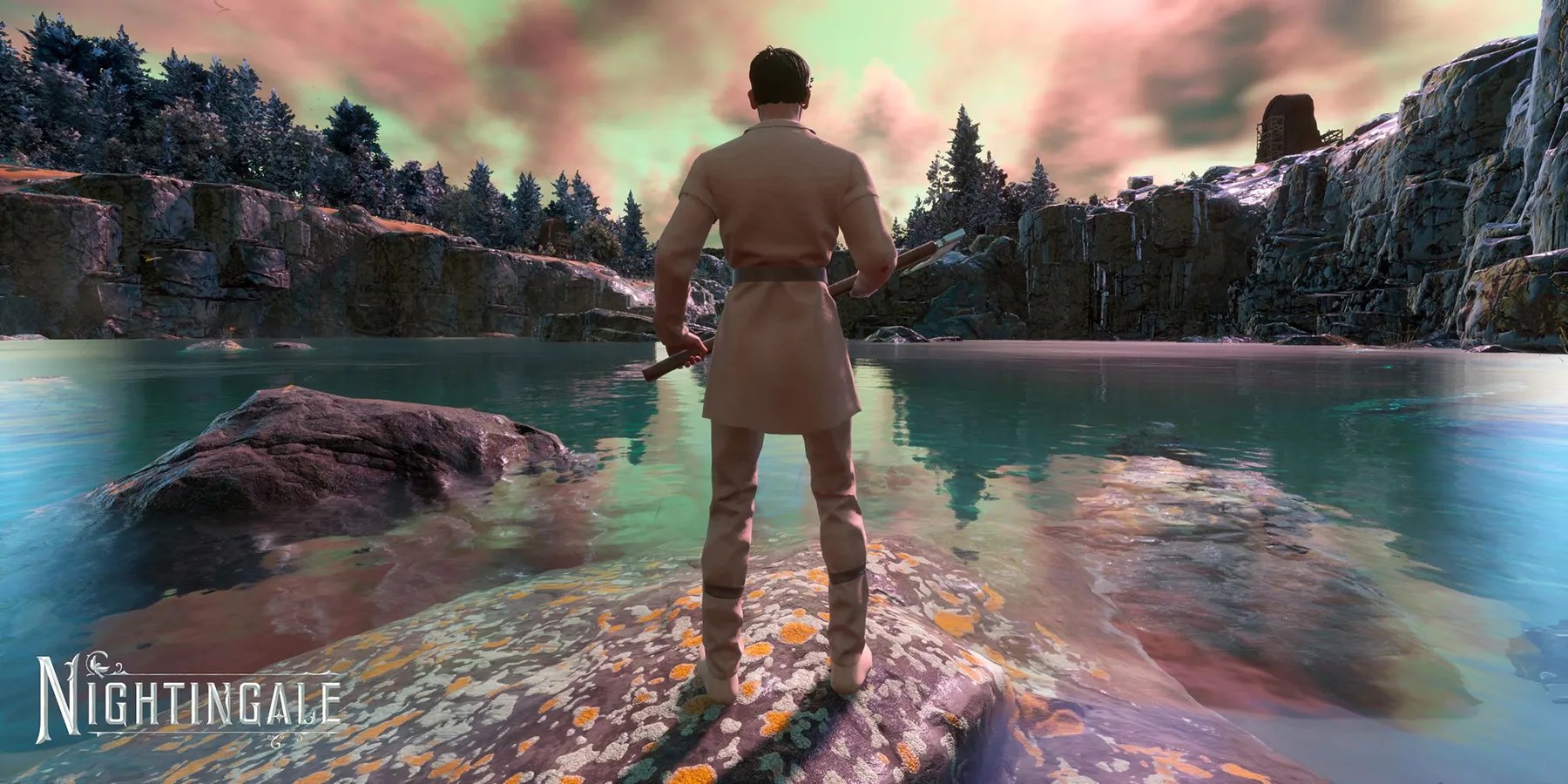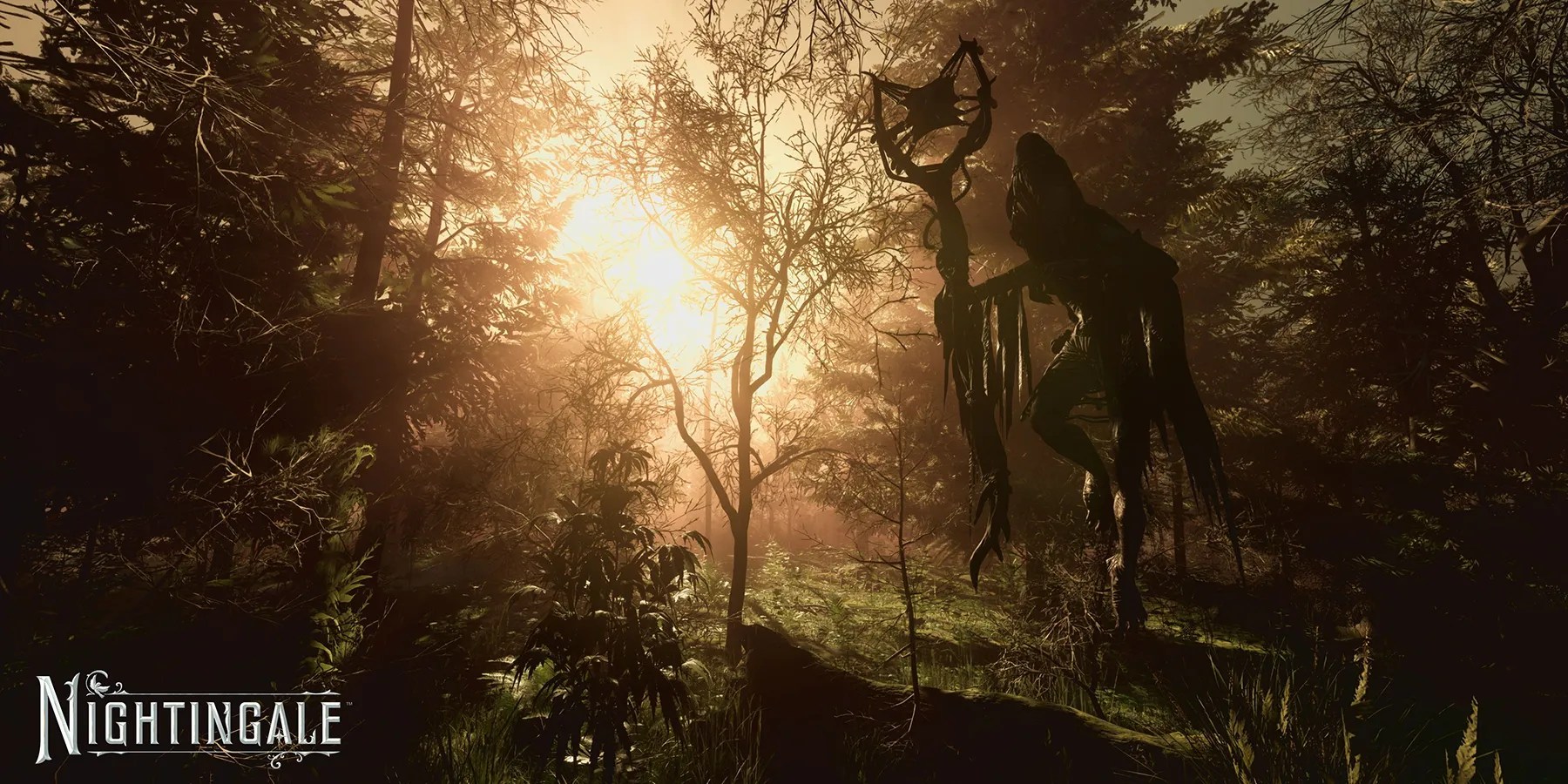Nightingalereleased a new trailer at The Game Awards that highlighted new features like caves and the ability to glide, while giving new looks at enemies players will encounter.Nightingale’sPCgameplay is shaping up to look like a fun shared-world adventure, but it’s the deep lore that many fans may find most interesting. InNightingale, players exist in an alternate history, one influenced by the Fae, and literature wasn’t always fiction.
For example, Ada Lovelace died at 36 of uterine cancer in the real world, but she lived and is aRealmwalker inNightingale(likely thanks to the advent of magic with the Fae). Henry Hyde, meanwhile, is an amalgamation of Dr. Jekyll and Mr. Hyde. Perhaps one of the most dominant and interesting characters ofNightingaleis Puck, who has been seen in trailers and screenshots since its initial announcement. Puck serves as a player’s guide in some way but is also based on the character from Shakespeare’sA Midsummer Night’s Dream. Game Rant recently spoke with CEO Aaryn Flynn, Director of Production Leah Summers, and Art Director and Head of Audio Neil Thompson aboutNightingaleas a whole, including Shakespeare’s influence on the game.

RELATED:The 12 Best Survival Games
For the uninitiated,A Midsummer Night’s Dreamis a story of the marriage of Theseus and Hippolyta as an overarching frame, four young lovers who find themselves in the woods, fairies caught up in court intrigue, and some actors who are practicing a play for the wedding. Hermia is in love with Lysander, but her father Egeus has given Demetrius his consent to marry her. Hermia and Lysander seek to elope, but Hermia tells Helena, who is in love with Demetrius. Helena, in turn, tells Demetrius, and the result is all four characters end up in the woods.
Meanwhile, Fairy King Oberon sends his jester, Puck, out to find the equivalent of a love potion due to issues with Fairy Queen Titania. When Oberon sees, in the midst of all of this, how terrible Demetrius treats Helena, he instructs Puck to give Demetrius some of it so he falls in love with Helena. However, Puck accidentally gives it to Lysander who falls in love with Helena, and when he tries to fix the mistake, both Lysander and Demetrius end up in love with Helena, who finds their actions disingenuous. Hermia tries to fight Helena because of Demetrius' and Lysander’s actions, but Puck intervenes, separating them in the forest. When everyone is asleep, Puck reverses the spell on Lysander and makes sure everyone forgets what happened, while making Titania fall in love with Bottom (whom Puck gives a donkey head earlier in the play). Everything is eventually corrected by Oberon, with he and Titania blessing the marriages of the lovers. Theseus and Hippolyta find the lovers, and they all go back to Athens to marry: Demetrius and Helena, and Lysander and Hermia.

This play is pure fiction in the real world, but inNightingale,that’s not necessarily the case. The dev team working onNightingale’s lore put together a historical timeline of events starting at the time of Elizabeth I, but changed them as if they were influenced by the Fae. The result is, sometimes, fiction being non-fiction or something that, over time, became warped into fiction. In the case ofShakespeare’s influence, Thompson said,
Shakespeare isn’t in there specifically, but some of the characters are. It’s more the idea that, within our alternate universe, Shakespeare was writing, possibly unknowingly, about real beings. A Midsummer Night’s Dream is a big influence in Nightingale, so not only Puck but Oberon, and this idea that the literature of the human past was not necessarily fiction.
Similar to how fairies exist inA Midsummer Night’s Dream, the world ofNightingaletells of how humanity and Fae worked together, until humanity saw itself as equal to Fae, and the latter left humanity behind.The city of Nightingale is dedicated to learning about magic, but as players get displaced through the realms due to an event called the Pale, they will find themselves coming face to face with Fae in the realms. There are two major factions of Fae, the Summer and Winter Courts, and several enemies players will face, but they are not inherently evil. This diversity of attitude is also reflected in Puck.
In the play, Puck is more of a joker and not a malevolent presence. Things go awry, but not intentionally, and he has a pension for pranks. He reflects something crude within the otherwise fanciful dalliance of the fairies and represents something between the mechanical actors and lovers, and the world of fairies. Puck inNightingalewalks this fine line as well. Thompson also added that,
In Nightingale, Puck is Fae—and he’s not. He’s a trickster of sorts, but more in a lowkey manner where you don’t know why he’s giving you the assistance he is. His motivations are inscrutable, and what he is doing is for his own ends. What those ends are, we don’t know. Will he turn on you at some point? Will he give you bad advice?
This air of mystery will no doubt play a major role forNightingaleas it moves through its Early Access period, and it remains to be seen how closely the two parallel. Some players are going to love the lore and history ofNightingale, while others may be more attached to the cooperative gameplay, and that’s okay. But, if nothing else, this shows how much thought, inspiration, and funculture likeShakespearegoes into game development.
Nightingalereleases in early access in the first half of 2023 for PC.